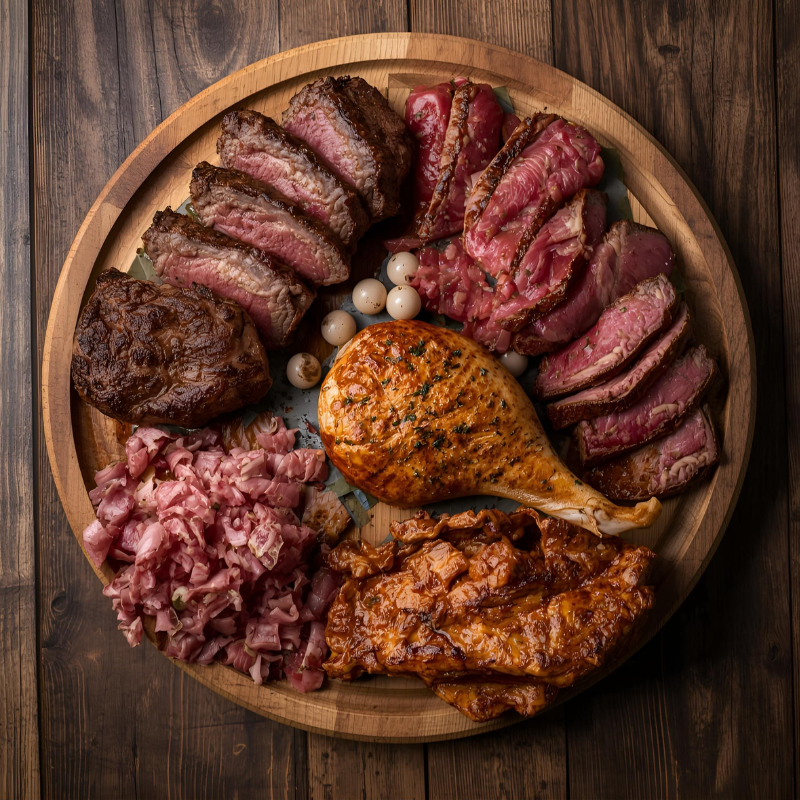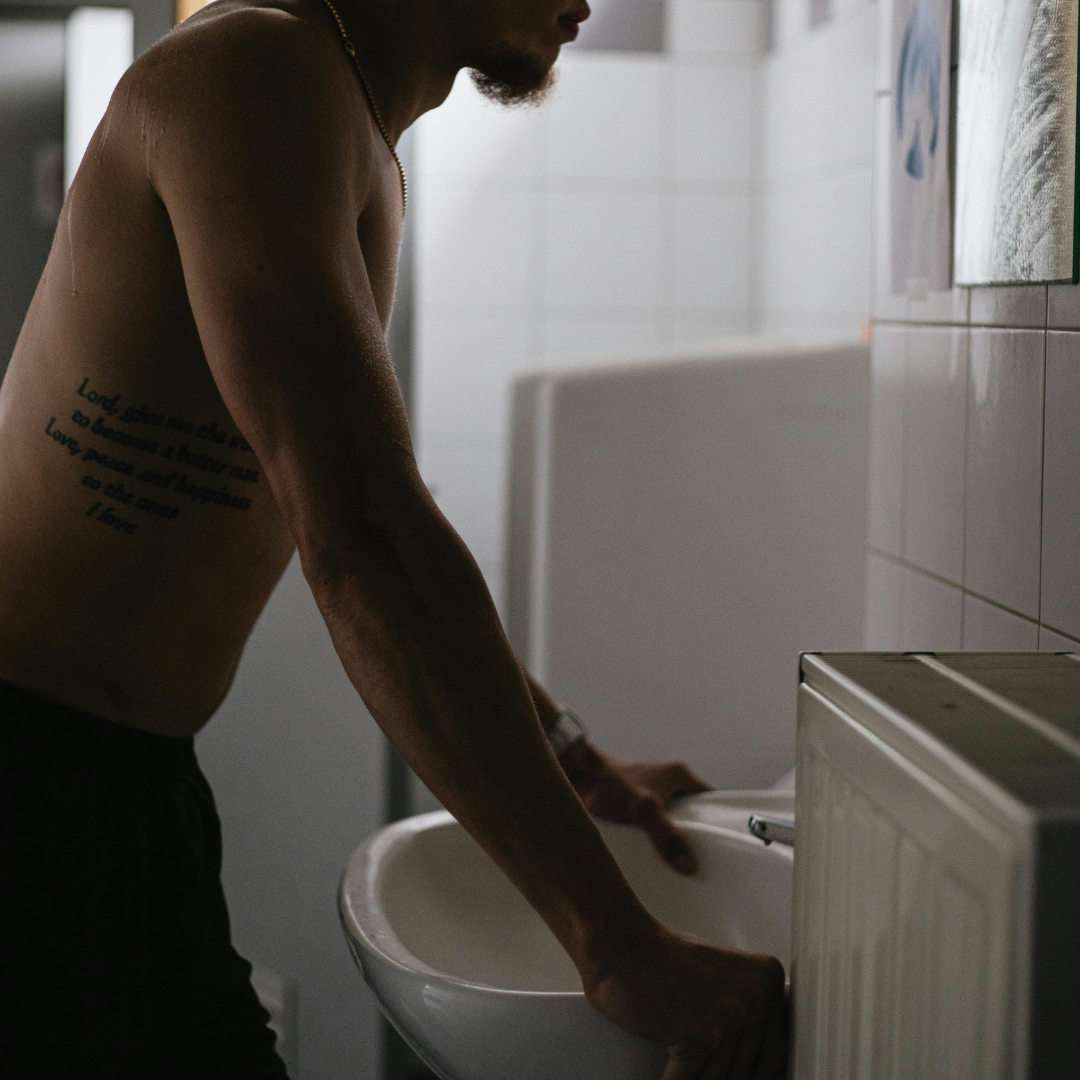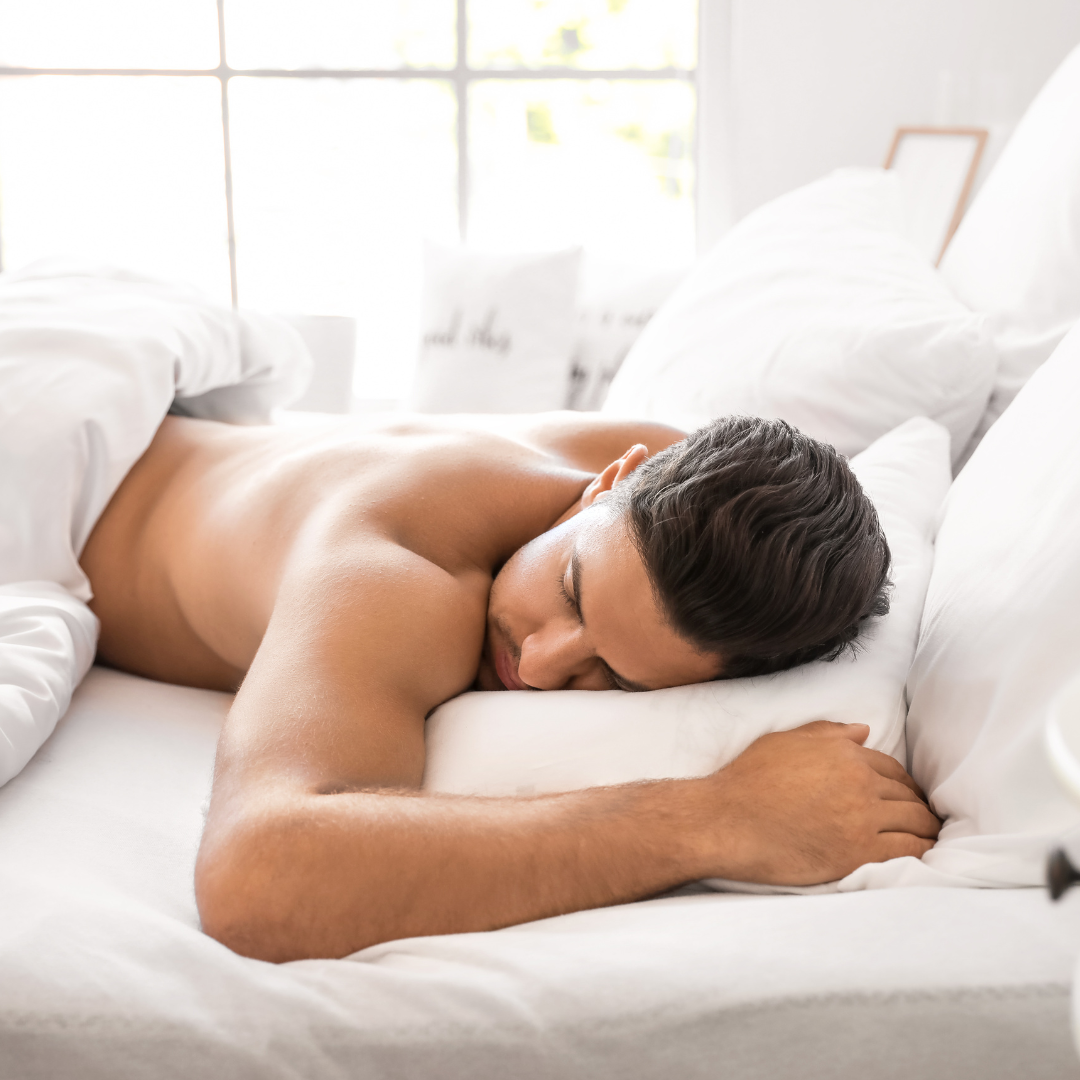You can lift heavy, eat clean, and train with intensity—but if you’re not sleeping well, your testosterone will take a hit.
Testosterone isn’t produced only in the gym—it’s produced while you sleep. The majority of your daily testosterone release happens during deep sleep and REM cycles, meaning even a few nights of poor rest can lower hormone levels, slow muscle repair, and affect your motivation.
In this article, we’ll break down how sleep and testosterone work together, what the research says, and how to reclaim your energy, libido, and muscle-building potential through better rest.
1. The Science: How Sleep Regulates Testosterone
Testosterone is governed by your circadian rhythm—the 24-hour biological clock that controls hormone release.
-
During the night, testosterone secretion rises sharply during REM and deep sleep.
-
Levels peak in the morning and gradually decline through the day.
-
Missing sleep disrupts this pattern, cutting your total production and blunting morning peaks.
Research evidence:
A study from the University of Chicago found that just one week of sleeping five hours per night led to a 10–15% reduction in testosterone levels in healthy young men.
Another NIH study showed that reduced sleep lowers luteinizing hormone (LH), which signals the testes to produce testosterone.
In short: sleep isn’t optional—it’s hormonal fuel.
2. How Poor Sleep Affects Men’s Health
Low sleep quality triggers a cascade of hormonal and metabolic issues:
| Effect | Mechanism |
|---|---|
| Lower Testosterone | Less REM/deep sleep → reduced secretion |
| Higher Cortisol | Stress hormone rises, suppressing T production |
| Muscle Loss | Slower protein synthesis, less recovery |
| Increased Fat Storage | Disrupted insulin sensitivity, higher ghrelin |
| Reduced Libido | Direct link between T and sexual function |
| Brain Fog & Irritability | Testosterone supports cognition and mood |
Even missing sleep for 2–3 nights can shift this balance temporarily. Chronic deprivation compounds the problem.
3. How Much Sleep Do You Actually Need?
Most adult men require 7–9 hours of quality sleep for optimal hormone function.
The sweet spot depends on your training load and stress levels:
| Training Volume | Ideal Sleep Duration |
|---|---|
| Light/Moderate | 7 hours |
| Heavy Training | 8–9 hours |
| Over 40 years old | 8+ hours (due to slower recovery) |
If you wake unrefreshed, need caffeine to function, or feel low motivation, your sleep quality—not just duration—may be the issue.
4. The Sleep-Testosterone Feedback Loop
Here’s why this relationship matters:
-
Poor sleep → lower testosterone → lower recovery → worse workouts → even poorer sleep.
-
Quality sleep → higher testosterone → better training → deeper sleep cycles.
Breaking the negative cycle means focusing on sleep hygiene as seriously as your workout plan.
5. How to Improve Sleep & Boost Testosterone Naturally
1️⃣ Set a Consistent Schedule
Your circadian rhythm thrives on consistency. Go to bed and wake up at the same time—even weekends.
2️⃣ Limit Screen Time Before Bed
Blue light suppresses melatonin. Turn off screens 60 minutes before bed or use blue-light filters.
3️⃣ Optimize Sleep Environment
-
Keep your room dark, cool (65–68°F), and quiet.
-
Use blackout curtains or a sleep mask.
-
Reserve your bed for sleep and intimacy only.
4️⃣ Prioritize Evening Nutrition
Avoid heavy meals and alcohol before bed—both reduce deep sleep.
Instead, have a protein-rich snack (Greek yogurt or casein) to support overnight recovery.
5️⃣ Manage Stress
Cortisol and testosterone compete for balance.
Evening meditation, journaling, or breathwork lowers cortisol and improves REM sleep.
6️⃣ Supplement Smartly (If Needed)
-
Magnesium glycinate: supports relaxation
-
Zinc: aids testosterone production
-
Ashwagandha: shown in studies to improve sleep and raise T levels
-
Vitamin D: regulates circadian rhythm and hormone synthesis
6. Sleep by the Numbers
| Sleep Quality | Testosterone Impact |
|---|---|
| 9+ hours | +10–20% higher average T |
| 7–8 hours | Optimal for balance |
| 5–6 hours | 10–15% drop in T after one week |
| <5 hours | 20–30% drop, plus increased cortisol |
The difference between feeling “tired” and feeling “drained” could literally be hundreds of nanograms of testosterone per deciliter.
7. When to Seek Professional Help
If you’re doing everything right and still feel exhausted, get tested.
Possible underlying causes:
-
Sleep apnea (common in men over 40)
-
Hormonal imbalance (low T, high cortisol, or thyroid issues)
-
Medication side effects
Work with a healthcare provider to evaluate hormones and sleep quality before considering testosterone replacement therapy (TRT).
8. Key Takeaways
-
Sleep is the most powerful natural testosterone booster.
-
Men who get 7–9 hours have higher T, better recovery, and improved mood.
-
Strength training and nutrition help, but sleep multiplies their effect.
-
Poor sleep accelerates aging, fat gain, and hormonal decline.
-
Master your nighttime routine, and your body will reward you daily.
References
-
Leproult R et al., Sleep Restriction Reduces Testosterone in Healthy Young Men, JAMA, 2011.
-
National Institutes of Health (NIH), Hormonal Impact of Sleep Deprivation, 2018.
-
ACSM: Sleep and Recovery in Athletes, 2022.
-
NSCA: Hormonal Adaptations and Performance, 2023.
-
PubMed: https://pubmed.ncbi.nlm.nih.gov
Read more

Discover the science-backed benefits of the Carnivore Diet, including improved energy, fat loss, mental clarity, and reduced inflammation — plus get a practical shopping list and 3-day meal plan to...

Learn how chronic stress lowers testosterone, slows muscle growth, and increases fat storage. Discover how to manage cortisol and rebuild hormonal balance naturally.

